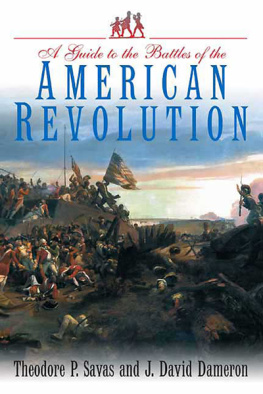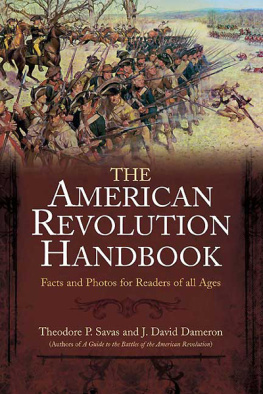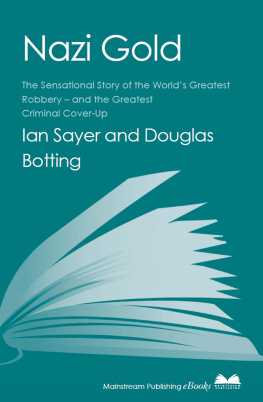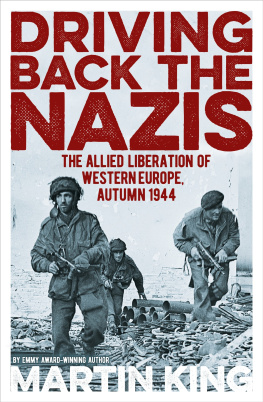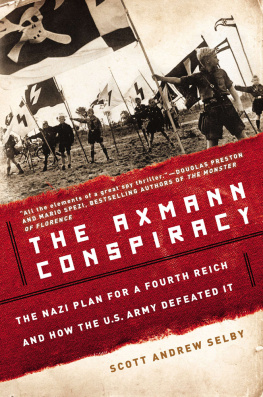Published in the United States of America and Great Britain in 2018 by
CASEMATE PUBLISHERS
1950 Lawrence Road, Havertown, PA 19083, USA
and
The Old Music Hall, 106108 Cowley Road, Oxford OX4 1JE, UK
Copyright 2002 by Kenneth D. Alford and Theodore P. Savas
Paperback Edition: ISBN 978-1-61200-595-9
Digital Edition: eISBN 978-1-93514-968-2
Kindle Edition: ISBN 978-1-93514-968-2
A CIP record for this book is available from the British Library
All rights reserved. No part of this book may be reproduced or transmitted in any form or by any means, electronic or mechanical including photocopying, recording or by any information storage and retrieval system, without permission from the publisher in writing.
For a complete list of Casemate titles, please contact:
CASEMATE PUBLISHERS (US)
Telephone (610) 853-9131
Fax (610) 853-9146
Email:
www.casematepublishers.com
CASEMATE PUBLISHERS (UK)
Telephone (01865) 241249
Email:
www.casematepublishers.co.uk
Preface
The prisoner was clad in reddish brown trousers, his white shirt open at the neck. With a minister leading the way, he walked steadily across the fifty yards separating his cell from the execution chamber, head erect and hands bound tightly behind him. He looked calm, remembered one witness, thin and older than his 56 years.
The gallowsthe first ever used in the history of Israelhad been set up in a small room that had once served as living quarters for the prison guards. The condemned was ushered to a spot on the floor and instructed to stop. Israeli President Itzhak Ben-Zvi had refused to commute the sentence of death, and so the prisoner found himself standing on a black-painted trapdoor that had been cut in the floor in the fog enshrouded Ramleh prison, waiting for the inch-thick hemp that would snap his neck and choke the life from his body. As his executioners tied his ankles and knees, he exhaled loudly and looked about, surveying his earthly surroundings one final time.
Can you loosen the straps a bit so I can stand erect? he inquired.
The guard ignored him. Do you have any last words?
Even when confronted with death he refused to atone for his crimes, brushing aside the ministers request that he repent. Squinting, eyes almost closed, he looked to the side and down at the trapdoor upon which his brief future on this earth rested. And then the doomed man spoke:
After a while, gentlemen, we shall all meet again. So is the fate of all men. I have lived believing in God, and I die believing in God. Long lives Germany. Long lives Argentina. Long lives Austria. These are the countries with which I have been most closely associated and I shall not forget them. I greet my wife, my family and friends. I had to obey the rules of war and my flag. I am ready.
A few seconds of silence lingered after his final words. A hood was offered. A shake of the head was his only reply.
The prisoners four-month trial had been one long and painful public replay of Nazi brutality. His testimonydefensive, cold, calculating, and remorseless throughoutpresaged his final rebuff of the Protestant ministers attempt at salvation. Visits to the death camps at Auschwitz, Treblinka, and a mass grave at Minsk, Russia, were coolly described with the words Corpses, corpses, corpses. Shot, gassed, dead they sprung out of the ground as the grave was opened. The stink it was a fantasy of blood. It was an inferno, a hell, and I defy anyone to say that I wasnt going crazy from it. No words of apology. No admission of guilt. Not a whisper of contrition.
Muchan! barked the Commissioner. Ready.
A noose was slipped over the prisoners head and secured snugly around his neck. Three men stood in a corner of the room hidden behind a tent of blankets. Each gripped a lever in his hand, rigged so that none of them could tell who actually controlled the trapdoor.
Muchan!
Christ! called out the minister. Jesus Christ! The words echoed for a few moments and then an eerie silence briefly filled the room.
The prisoner stiffened when a rustling sound was heard behind the partition. The trapdoor dropped open, and Adolf Eichmann was dispatched into eternity. In accordance with his Will and Testament, his corpse was cremated, its ashes scattered in the Mediterranean Seajust outside Israeli waters.
It was a few minutes before midnight on May 31, 1962.
***
On February 10, 1961, while Eichmann impatiently paced inside his cell awaiting trial, crystal chandeliers were swaying softly from the high ceiling in the banquet room of the old city hall in Bremen, Germany. Several large models of three-masted ships swayed gently between the magnificent light fixtures, a tribute to the vessels that had brought both wealth and power to the port city. The descendants of these merchants and sea captains, outfitted in their best clothes or crisp uniforms, together with a few other honored guests, were about to take their seats below the hanging models at long festively-arranged banquet tables. They were there to hear businessman Kurt A. Becher address them.
A member of the Seafaring House and one of the richest men in Bremen, Becher was the afternoons main speaker at the annual Bremen Seafaring Association celebration, which for 416 years had been held each year on the second Friday in February. Like Adolf Eichmann, whom he knew well, Hamburg native Becher carried with him a not-so-secret burden. The canvas of his World War II past was smeared with a myriad of colorful connections to mass Jewish deportations, concentration camps, and mechanized murder. His tenure in Budapest offered Hungarian Jews and other undesirables life with one handif they filled it with goldand deportation and death with the other. Unlike Eichmann, however, Becher was not considered one of the top tier of Nazis slated for immediate arrest and trial. Years had passed and Lady Luck, apparently, still hovered overhead.
The illustrious, tradition-laden event began at 3:00 p.m, when a glass bell rang six times, calling those in attendance to silence. The president of the board announced the traditional and rather mysterious phrase, Working upstairs and downstairs, upstairs and downstairs working. A trio of raps on a carved oak door ensued, followed by orchestral strains of Entrance of the Guests in the Wartburg. Those gathered in attendance stood up and slowly moved toward the banquet room, the tables arranged in the shape of Neptunes trident, the seating arrangements carefully planned well in advance. The meetings first speaker addressed the attentive crowd. The next scheduled lecturer was businessman and multi-millionaire Kurt Becher. To the groups dismay, another was introduced in his stead. Murmurs of disapproval coursed through the angry and confused crowd.


